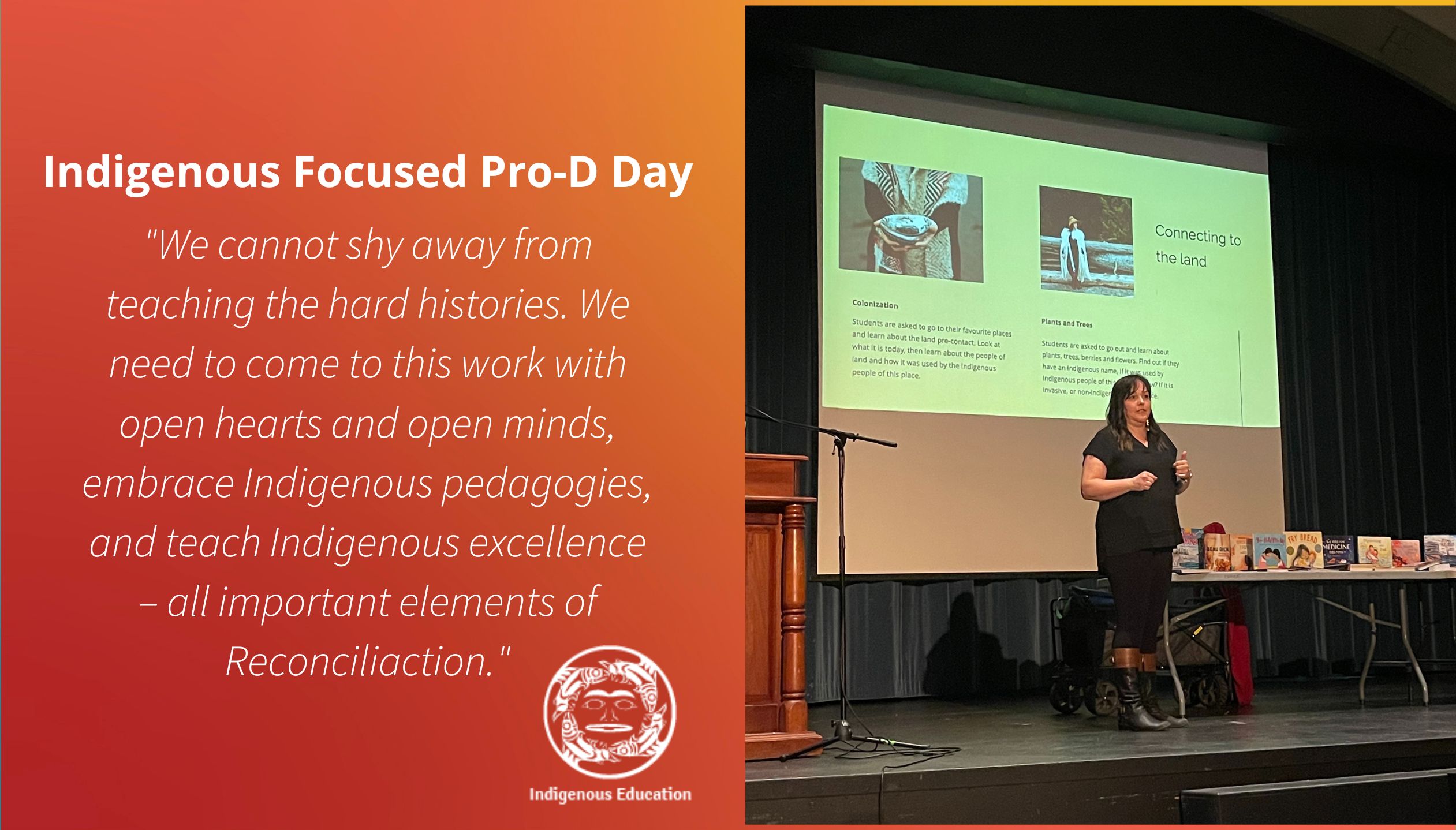The power of stories: District staff participate in Indigenous Focus Day

Last Friday, District staff participated in an Indigenous Focused Pro D Day, where they learned how to incorporate Indigenous ways of knowing and being into the classroom. In her guest writer piece, Shirley Burdon, teacher and English department head at Gladstone Secondary, shares a thoughtful analysis of some key takeaways from the District-wide Indigenous Focused Pro-D Day:
Written by: Shirley Burdon, teacher at Gladstone Secondary
In his brilliant collection of essays, The Truth About Stories, Thomas King shares stories about culture, politics and his Indigenous-lived experiences. Some stories are funny, others unsettling; all examine the impact of colonization on Indigenous peoples. King concludes each narrative with an imperative: “Take this story and do with it what you will. Tell it to your children, turn it into a play, forget it. But don’t say in the years to come you would have lived your life differently if only you had heard this story. You’ve heard it now.” It was this emphasis on the power of stories, of listening and of Reconciliaction that resonated most strongly for me during the Indigenous Focus Day.
When I began teaching First Peoples English 12, and I asked students how many had heard of Residential schools, one or two might have raised their hands. Ten years later, when I ask the same question, almost all hands are raised. This is due in no small part to the power of stories: of survivors who shared their truth, and of people who listened, learned and passed on their knowledge. So, it was inspiring to hear stories of community members, colleagues and students about engaging with Indigenous ways of knowing and being, and the rewards of teaching First Peoples courses.
During the day, we were encouraged to ask questions and identify the challenges we anticipated moving forward, particularly considering the newly announced Indigenous Graduation Requirement. While educators are committed to infusing Indigenous content into classrooms, many are also concerned about just how to do this work in an authentic and respectful way.
And it is this candor and humility that may well have offered one of the most important insights of the day. Musqueam councilor Morgan Guerin reminded us earlier that while Indigenous colleagues, students and families are willing to share their stories, they themselves are also healing. We need to hear these stories and seek guidance in how to proceed with this work in a good way, but the work is ours to do. Carolyn Roberts acknowledged that this work may be messy and uncomfortable, and that it will require us to interrogate our own practice as we begin decolonizing our classrooms. But more importantly, she encouraged us.
Not only is it possible to engage with Indigenous content, but it is essential if we want to move forward in a good way. We cannot shy away from teaching the hard histories. We need to come to this work with open hearts and open minds, embrace Indigenous pedagogies, and teach Indigenous excellence – all important elements of Reconciliaction – and that is a story that students, colleagues and community members are hoping to hear.
